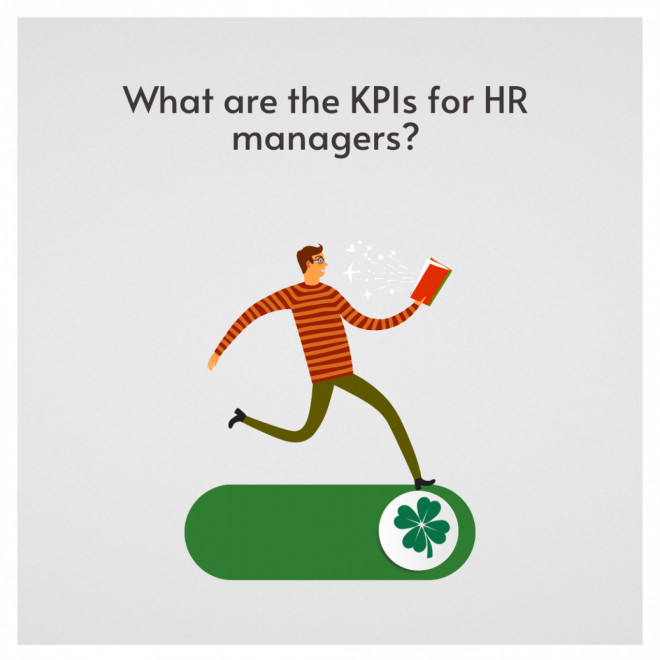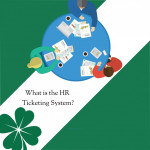For companies to understand where they are going, what goals they are pursuing, and what goals they are moving towards, it is necessary to measure the results in all departments of the company, including the HR department. Measuring results is fundamental for companies to make balanced decisions and build effective development strategies. Setting KPIs in human resources is key to obtaining the desired results and achieving the strategic goals of the HR department.
What are the KPIs for HR managers?
KPIs are units of measurement used to establish the results of specific actions. Therefore, they are a reference for evaluating processes and identifying successes and shortcomings of previously adopted decisions and actions.HR metrics measure processes related to recruiting, training, talent management, and more. These indicators enable managers and HR managers to understand each other, set specific goals and achieve them. Note that HR software significantly simplifies and makes tracking KPIs more comfortable for all specialists.
Sign up today and get a free month of Brainy HR demo.
KPI for HR. Indicators for measuring success
To take effective actions that bring results, HR specialists must work according to the formed KPIs.These key indicators should be:
- Achievable. You need to set realistic goals, according to previous results, and not just data that you want to achieve.
- Specific. KPIs should be clear and have a specific purpose.
- Relevance. It is necessary to monitor only what matters and affects the entire business's success.
- Measurable. If it is impossible to measure a KPI, then you have set it incorrectly, and may it not be a KPI.
Key KPIs for HR specialists
- Talent retention rate
Talent retention is closely related to staff turnover. However, instead of measuring the number of employees who left the company, this KPI measures the number of employees who stayed or were retained by the organization. Understanding an organization's average employee retention coefficient is critical to workforce planning, recruiting, and overall business strategy. Similar to turnover rates, retention rates can provide insight into other factors, such as compensation levels or work climate. When talented staff leaves the company, the HR department spends valuable time and resources recruiting to fill the position. In addition, the loss of productivity resulting from an open position can seriously affect business profits. High staff turnover implies high costs for the employer. The talent retention rate is calculated by comparing the number of employees who joined the company during a certain period and those who stayed during the same period. HR should investigate how salary, vacation policies, or office climate affect retention.
- Absenteeism
Absenteeism is also important for HR professionals to measure the number of workdays missed due to illness or other reasons. This indicator can help plan future changes or change your HR strategy to quickly solve the problem with an absent employee.HR managers can calculate a key HR KPI by calculating the average hours worked. This will show the impact of absenteeism on company costs.
- Average employment time
Average hiring time measures the time between the announcement of an employee’s dismissal from the company and the time when another candidate is selected for his replacement. It is quite possible to optimize the average time of each new hire.
- Employee productivity
This KPI measures the performance of your workforce. It analyzes how much time employees need to complete certain tasks and goals set for their position in the company. That is, it analyzes how well your specialists cope with the assigned tasks. To understand employee productivity, the HR department must consider all the factors that affect employee productivity depending on the position and the specifics of the job.
HR software will also help with measuring this KPI. Therefore, save your precious time and deal with really important tasks. And specialized programs will help you in your work with routine tasks.
Technologies are the future.
- Satisfaction of employees
Often this indicator can be neglected and not included in the list of the most important. But in our opinion, this is a big mistake. After all, we will remind you that in the previous articles we wrote, there is a "war for talents" going on in the world now. Therefore, every company needs to think about how to keep competent specialists in its team and how to take care of them so that they like to stay and develop in this company. Employee satisfaction depends on several factors in addition to financial benefits. These include a positive work-life balance, remote work, flexible work options, and non-monetary benefits. For example, a discount in the gym. Companies can measure talent satisfaction through employee satisfaction surveys, which should be conducted regularly to ensure that all employee needs are being met and that any issues are being addressed.
- Cost Per Hire
It is also an extremely important indicator that will help you understand how much you invest in attracting co-workers to your company. And perhaps after that, you will understand that something needs to be changed in the HR - strategies to, for example, reduce these costs, or on the contrary understand that there is a possibility to increase costs. This measure measures the number of resources you invest for each new employee you need. It covers all costs from staff selection (advertising/marketing, referral incentives, time spent reviewing and selecting CV recruiter, then interview) to training (manager/instructor time, materials, and time spent for new employee). These expenses are accumulated quite quickly and influence the company's budget, therefore hiring should not be perceived lightly. But without employees, it is impossible to do work and conduct business. And this is, in the end, the essence of every business: Investing in talent that will bring even greater value. So even if investments can make the finance department think, the potential to attract talent is always worth it. Measure the cost of hiring according to the source of employees hired and see what is most expensive or least expensive. Although the cost should not be the main factor in making a decision. After all, it is necessary to think about quality first.
- Talent Rating
The importance of regular, constructive meetings with employees and internal feedback meetings is undeniable and taken for granted in most companies today. However, HR must measure the quality of its employees to be able to evaluate its recruitment efforts. For example, marketing staff evaluations may be determined to be unsatisfactory, which may be due to incorrect evaluation criteria during the hiring process or missing and irrelevant tests covering the wrong topics. To be able to detect such deficiencies and have an adequate overview of the quality of your employees at any time, you should develop an individual employee evaluation system according to each profession. (talent assessment). The more individualized and better your employee evaluation system is, the greater the potential benefit of this KPI for HR managers.
- Rate of staff turnover
The turnover rate shows how many of your employees are dismissed voluntarily, and how many employees are dismissed by managers. Measuring this indicator shows the effectiveness and success of your company in terms of the right effort to recruit and retain talent. It is desirable that people who do not fit into the company go – and this is not bad for both sides. But the bad indicator is that talents leave your company, then the company loses important and valuable human capital and it becomes a problem. You should monitor the first reasons, if you have a high turnover of personnel, and identify potentially problematic areas to be corrected. Low staff turnover is always better for long-term results and lower overall hiring costs.
Summary
Analytics and measurement of results are becoming more important for HR departments. In the modern world, it is not necessary to do it to people manually. After all, we have a great opportunity to use AI and ML in our work.HR Software helps you achieve your goals and success by automating many routine processes and tracking accurate data analytics. This way, specialists can trust the program to work with important data and figures. At the same time, specialists can perform more important intellectual and strategic work. Start to install and monitor KPIs for HR in your company with Brainy HR software.Register today and get free access to the demo version per month. Technologies are the power of your business.


 Posted on Sep 14, 2022 by Lillia
Posted on Sep 14, 2022 by Lillia


